Verified Organisation Profiles
Discover organisations to support today
Kakuma Kalobeyei Refugee-led Initiatives KKRIN
Kakuma Kalobeyei Refugee-led Initiatives Network is a Network of organizations led by refugees in the Kakuma Refugee Camp and Kalobeyei settlement, which advocate, empower, support, and promote collaboration among RLOs/CBO, UNHCR, Humanitarian agencies, and the government. Kakuma and Kalobeyei are both refugee camps in Kenya hosting thousands of refugees from different countries who have fled conflict, persecution, and other forms of violence in their home countries. These communities face many challenges, including limited access to education, healthcare, and employment opportunities. Despite these challenges, refugees in Kakuma and Kalobeyei have shown incredible resilience and resourcefulness, working to build a better future for themselves and their families. The Kalobeyei-Kakuma Refugee-led Initiatives Network is a platform for RLOs/CBOs to come together, share knowledge and resources, and collaborate on initiatives to help improve the lives of all refugees living in the camps. Our mission is to advocate and empower refugee-led organizations/community-based organizations in Kakuma Refugee Camp and Kalobeyei settlements, promoting collaboration and supporting initiatives to address the needs of our communities. Our vision is of a future where refugee-led organizations in Kakuma and Kalobeyei areas have the tools, resources, and support to lead their communities, foster social and economic development, and contribute positively to the region's overall growth and prosperity. Objectives To advocate for RLOs/CBOs and to increase awareness of refugee issues, locally, nationally, and internationally, ensuring they participate in decision-making processes that affect their lives. To strengthen the capacity of refugee-led organizations to lead, innovate, and address the challenges faced by the communities they serve.
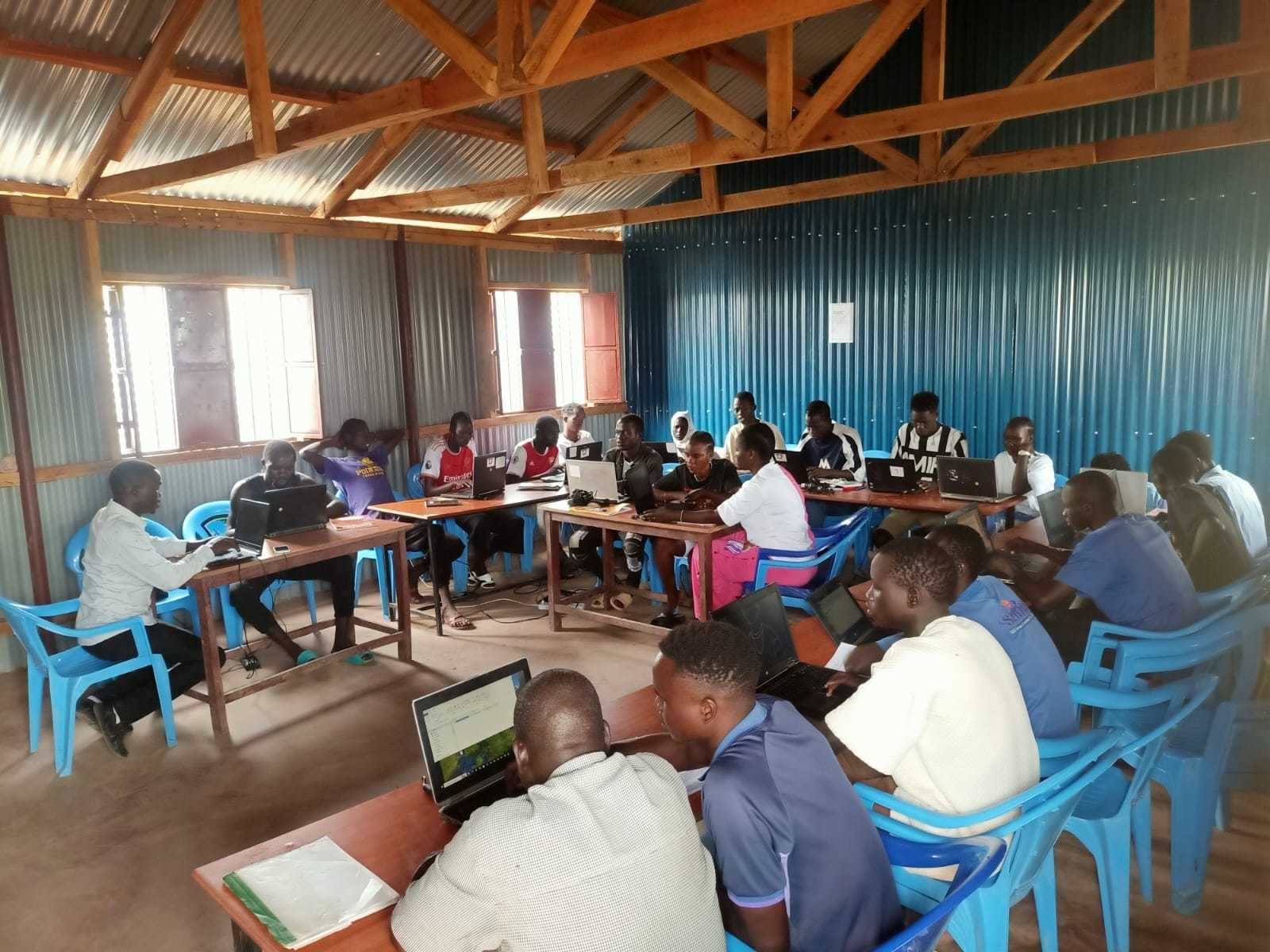
Humanity Hands
Humanity Hands formerly (INVER) is a Refugee-led and oriented Community Based Organization (CBO) established in 2018 by refugees' youths to help in supporting Refugees and Host communities. Humanity Hands organization seeks to change narratives, promote the resilience and psycho-social well-being of refugees in Kakuma Refugee Camp, Turkana County, Kenya, through programs focusing on Education, Digital Literacy, Enterprise development, Advocacy, Arts, sexual and Reproductive Health Education (SRHE). Humanity Hands organization approach is to change the narrative of both refugees and host community to help them live a life of dignity. As an organization we majorly focus on the Five thematic areas of interventions within the Kakuma Refugee Camp: Education, Digital literacy, Entrepreneurship, Sexual & Reproductive Health (SRH) and Art

Children Relief Service (CRS)
Children Relief Service (CRS) is a nonprofit organization based in Dzaleka Refugee Camp, Malawi, focused on empowering vulnerable children and youth, particularly girls. Through education, vocational training, and child protection programs, CRS creates opportunities for children to thrive despite the challenges they face. Key Programs: 1. Child Protection: Safeguarding children from abuse, exploitation, and neglect. 2. English as a Foreign Language (EFL): Helping refugee children gain language skills for education and employment. 3. Vocational Training for Girls: Offering hairdressing and cosmetology training to empower girls with skills for economic independence. 4. Community Engagement: Involving the community in protecting children and empowering youth. CRS aims to create a world where every child is educated, protected, and valued, offering them the chance to overcome poverty and inequality and become leaders of change.

Elimisha Kakuma
Elimisha Kakuma, which means “Educate Kakuma” in Swahili, is the first college-preparatory gap year program designed specifically for refugees from Kakuma Refugee Camp in Northwest Kenya seeking higher education. It was founded in 2021, by three graduates of Bridge2Rwanda, all of whom are former refugees from Kakuma Refugee Camp and studied in the US (Harvard/GWU/St. Olaf), Joseph Dudi Miabok, Diing Manyang,and Mary Maker, along with their former Lead Teacher at B2R, Deirdre Hand (MA Education, Virginia Tech.) Elimisha Kakuma provides access to higher education opportunities for high school graduates living in Kakuma Refugee Camp in Kenya. Students receive intensive academic instruction, exam preparation, mentorship with current college students, and guidance through the college application process. As more refugees gain access to higher education, their long-term life outcomes will be improved and their communities will be strengthened.

Trans Refugee Initiative
Trans Refugee Initiative is a politically and religiously independent non-profit health and human rights advocacy initiative with a strong support system for most vulnerable refugees, migrants and internally displaced youths and women. We work in partnerships with communities, civil society, government and private sectors to positively transform refugees. Initially known as Freedom in Harmony Group, Trans Refugee Initiate was registered as a CBO under Mbarara City Authority but due to need to expand our work and depict those we serve we upgraded for an NGO status. We completed the necessary legal procedures and documentation to become a registered non-profit organisation in 2024. This involved complying with the requirements set by the Government Of Uganda, such as obtaining the necessary permits to operate as a non-profit entity. Since our founding we have mainly focused on promotion of determinants of positive health and well-being; social inclusion, healthy environment, freedom from discrimination and violence and livelihoods development basically targeting the most vulnerable refugees, migrants and internally displaced persons. We envision peace and justice in a healthy world.

CEBUNA
COMMUNITY OF ENGAGED BENEVOLENTS FOR UBUNTU OF NAKIVALE (CEBUNA) known as former Communauté Estudiantine Burundaise de Nakivale, we are dedicated to the improvement of life standard of Refugees, Host communities, children, women in particular and works alongside Nakivale youth and adolescents, whatever the context offering them assistance and supporting them in their efforts to become self reliant with commitment to excellence. We strive to create a foundation of hope and resilience by addressing the interconnected challenges of education, livelihood support, self-reliance to mitigate dependency on aid and develop harmonious coexistence within refugees and host communities. With focus on Childcare, Livelihood and Education, we take an active role and contribute in the sustainable development of Nakivale refugee settlement by Uplifting our fellow refugees and host community members.
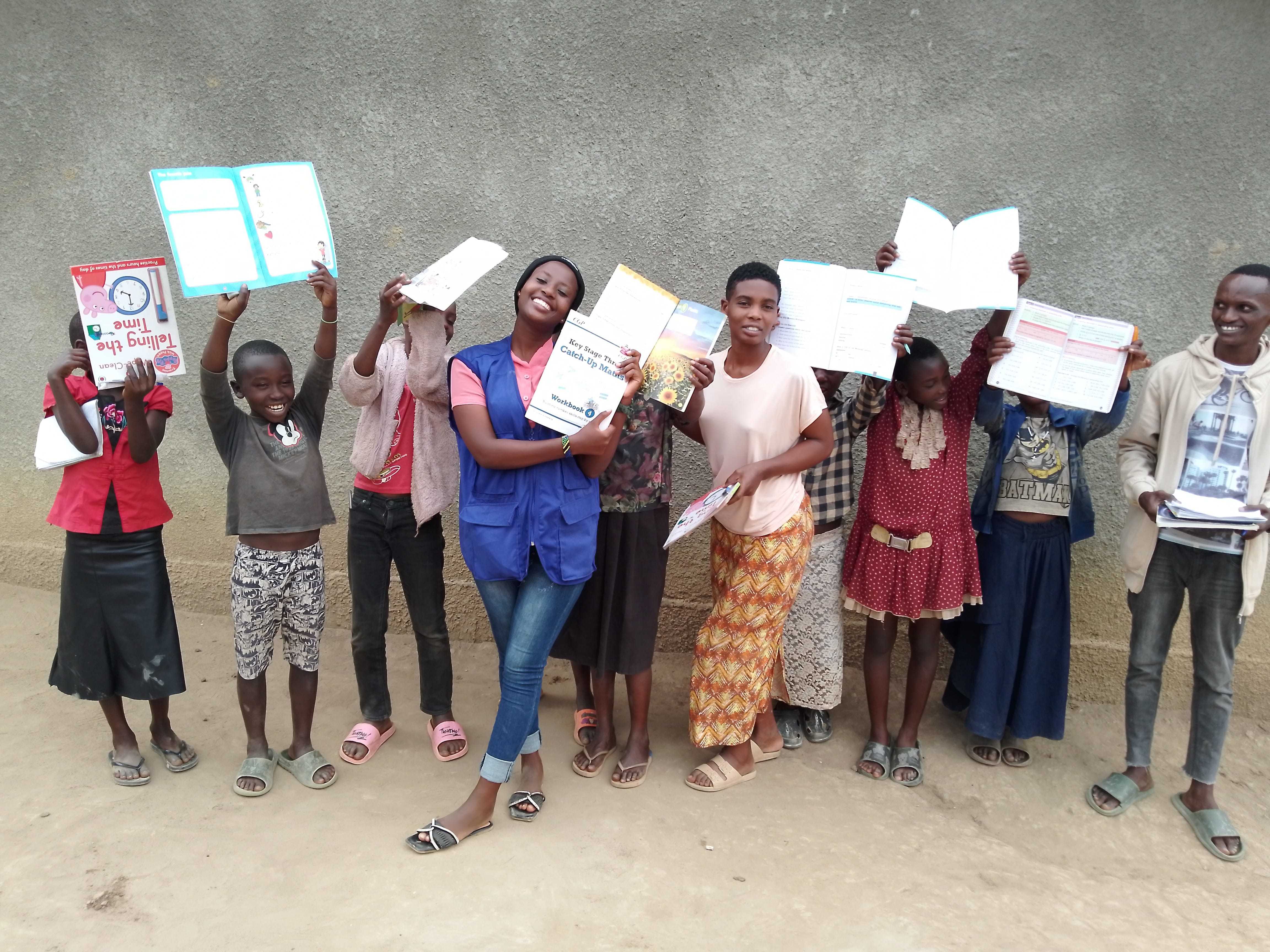
Actions for Women and Youth Foundation -AWAY FOUNDATION
Actions for Women and Youth Foundation -AWAY FOUNDATION is a Refugee women led, community Based and none profit organization located in Rwamwanja Refugee Settlement, kamwenge district in Uganda established in 2021 with an aim to develop, empower and promote Refugee women, youth, children and people with disabilities offering humanitarian assistance to marginalized groups and individuals with a vision to have a United, safe, healthy and self reliant Refugee communities and Committed to tackle development challenges correctively for the betterment and prosperity to enhance positive socio-economic transformation of all refugee communities and fight the inability affecting the youth, women, children and people with disabilities most especially the vulnerable people and extremely poor households residing in Rwamwanja Refugee Settlement and it's surrounding areas. We are dedicated to fostering the well-being of vulnerable populations, with a primary focus on protection, Women empowerment, livelihood the prevention of Gender Based Violence (GBV). We are passionately engaged in various initiatives aimed at safeguarding Refugee women, youth, children and people with disabilities from harm, exploitation, and abuse. Through community-based programs and partnerships, we work towards creating a protective ecosystem that empowers children with the knowledge and resources necessary for their holistic development. Addressing the pressing issue of gender-based violence is another cornerstone of our efforts. We implement comprehensive prevention strategies that encompass awareness campaigns, educational workshops, and community mobilization. By fostering a culture of respect and equality, we aim to mitigate the risk of GBV and contribute to the creation of safer spaces for women and youth, and those with impairments. We recognize the resilience and potential within these communities and strive to provide them with the support needed to overcome the challenges they face. We empower women and youth, people with disabilities and children to become agents of positive change in their own lives and communities.

TIMES CENTER FOR VOCATIONAL TRAINING AND REHABILITATION
About Us Times Consulting Training Center, founded by Tadjadine Mahamout and his team, empowers marginalized communities with the professional skills needed to succeed. We bridge the gap between strategy and skill, driven by our motto: “Empower. Educate. Excel.” Our programs include Leadership Development, Corporate Training, Strategic Solutions, and hands-on Workshops and Certifications. From computer literacy and language learning to digital marketing and coaching, we provide practical, real-world expertise. By focusing on marginalized groups, we transform untapped potential into measurable success. With a regional network of experts, we’re shaping a future where skills, strategy, and social impact converge. Join us—because everyone deserves the chance to rise.
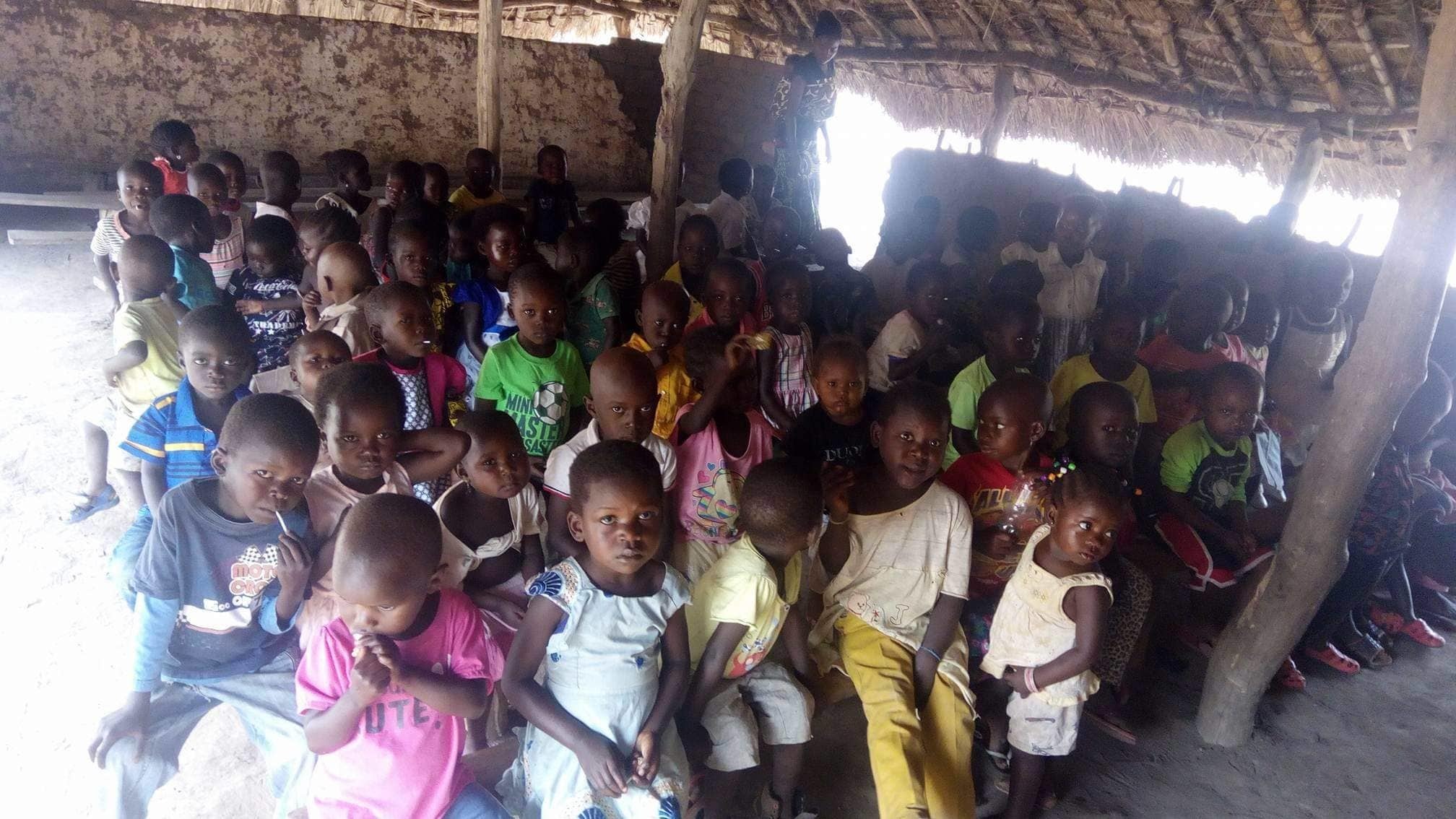
Youth Association for Peace and Development YAPD
Youth Association for Peace and Development (YAPD) is a registered non-profit, nongovernmental, development and Refugee led initiative organization dedicated to fighting poverty and injustices to reduce human suffering and enhances communities’ livelihoods YAPD is legally registered with the State ministry of humanitarian affairs under Relief and Rehabilitation Commission (RRC) in 2018. The registration number is 47 giving YAPD the legal status and humanitarian position to operate in any part of the Western Equatoria State. VISION STATEMENT Our vision is to seek a world of hope, tolerance and social justice, where poverty has been overcome and people live in dignity and security. MISSION “Is to inspire, empower and transform communities to move towards self-reliance through provision of social services and development assistance”
Collective Change
Support RLOs leading change in their communities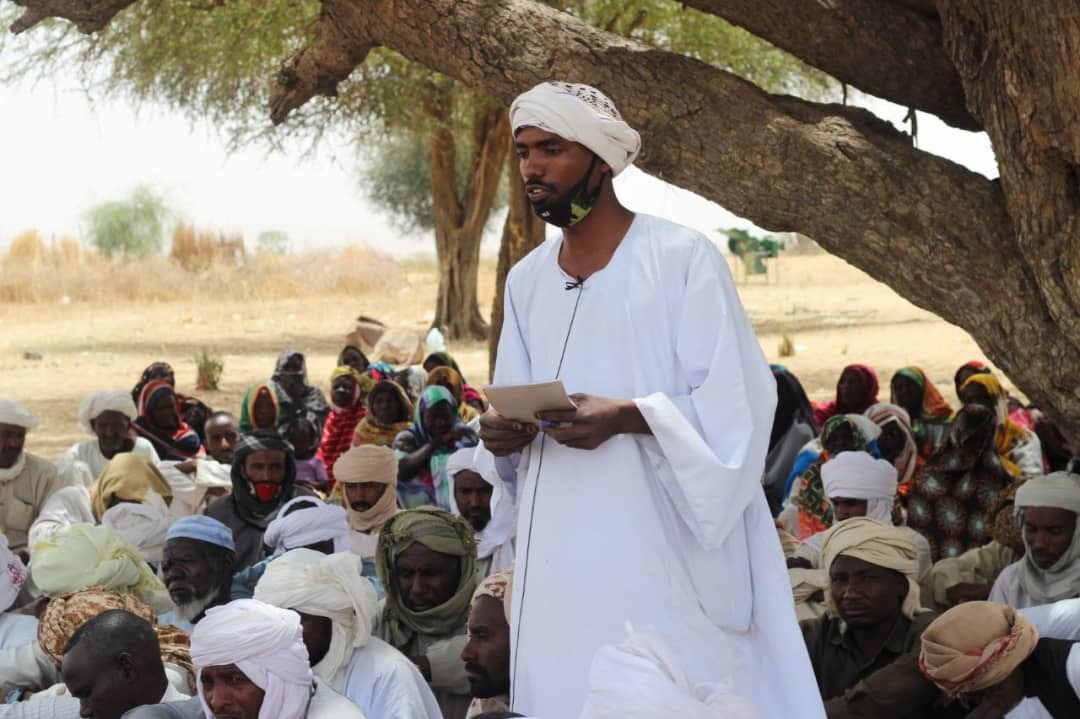
Sudan Campaign
Over 8.1 million people have been forcibly displaced by the Sudan conflict. HRRDS, ICSS, RoG & RIWA are at the forefront of responding to the crisis and urgently need flexible funding to adequately respond to the emergency, ensure effective response, and support the most vulnerable populations in both Sudan and South Sudan. Your contribution can help these local organizations deliver life-saving aid and long-term solutions amidst the crisis.
Raised: £ 46,613
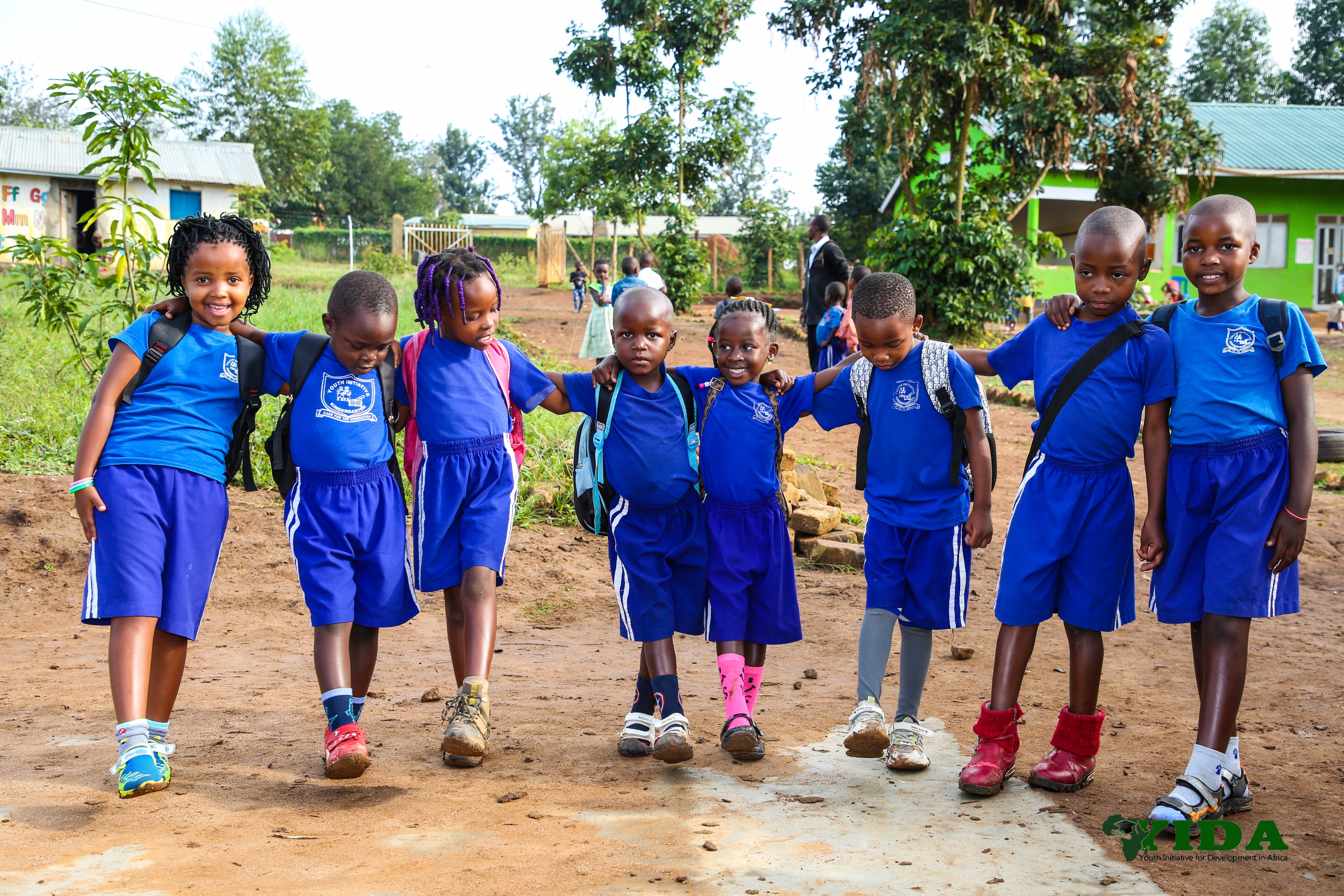
Basic Education
Five refugee-led organisations (RLOs) are transforming their communities by delivering formal education initiatives to refugee children. The schools run by the RLOs, are providing over 2,071 children with unique and quality education opportunities that can help them build better futures. At a global level, UNHCR estimate that half of the 3.5 million refugee children of primary school age do not go to school. This can have severe developmental and psychosocial impact on these young people on top of their experiences of being forcibly displaced. Formal education systems in refugee-hosting countries often cannot meet the demands, as well as there being multiple barriers for refugees enrolling in schools. RLOs are playing a vital role in closing these gaps, however their expertise in delivering formal education is not always formally recognised. Refugee-led organisations are working to ensure that the next generation of children can build better futures for themselves. They want to build more classrooms, ensure teachers are trained properly, and ensure that children can access learning in safe spaces that nurture and protect them. These organisations are coming together despite these challenges to serve their communities meaningfully. Find out more about the progress they’ve made below and read their stories of collective change. The more support they receive, the more they will be able to improve the quality of the learning experience and enroll more children in their schools. Be part of the change and donate today.
Raised: £ 34,169

DR Congo War Emergency Campaign
UPDATE 4TH MARCH 2025: Due to the kind support of donors we have been able to send the funds raised so far to Fountain of Hope in Bukavu and Goma. The team there have been able to use the funds to support children from the destroyed displacement camp outside Goma with basic provisions and shelter. The humanitarian crisis in the Democratic Republic of Congo (DRC) is escalating rapidly, with intense fighting between M23 rebels and government forces in the East of the country. The violence has left many dead and injured, while displacement, food insecurity, and infrastructure breakdowns worsen the suffering of civilians. Hundreds of casualties: The United Nations estimates that approximately 7,000 people have been killed in the region since January, with a significant number of civilians among the deceased. A healthcare emergency: Hospitals in Goma are overwhelmed, facing severe shortages of medical supplies and staff. Mass displacement: Over 700,000 people have fled their homes since January, adding to the millions already displaced in eastern DRC. Food insecurity: Blocked roads and resource shortages have left families struggling to access basic nutrition. Humanitarian access restricted: Key roads and Goma’s airport are unusable, hampering relief efforts. How Your Support Helps Local Refugee-Led Organisations (RLOs) are leading the response despite limited resources. Cohere through Reframe, is partnering with these organisations to deliver critical support. Your donation will enable: Basic Provisions: Ensuring food distributions for families facing acute hunger. Safe Shelter: Providing secure spaces for displaced women, children, and vulnerable groups. Strengthened Local Response: Enabling local organisations to adapt swiftly to on-the-ground needs. Why Local Organisations RLOs bring trusted relationships and local expertise, ensuring aid reaches those who need it most. Flexible funding empowers them to respond effectively to this rapidly evolving crisis. Cohere has worked with the RLOs listed above for several years and established trusting relationships with local leaders. Take Action Today Donate now to the DR Congo Emergency Response Campaign via the Reframe platform by clicking on the Donate button above. All donations will go straight to local organisations on the frontline of this crisis. Share this campaign to help amplify the call for urgent action.
Raised: £ 400
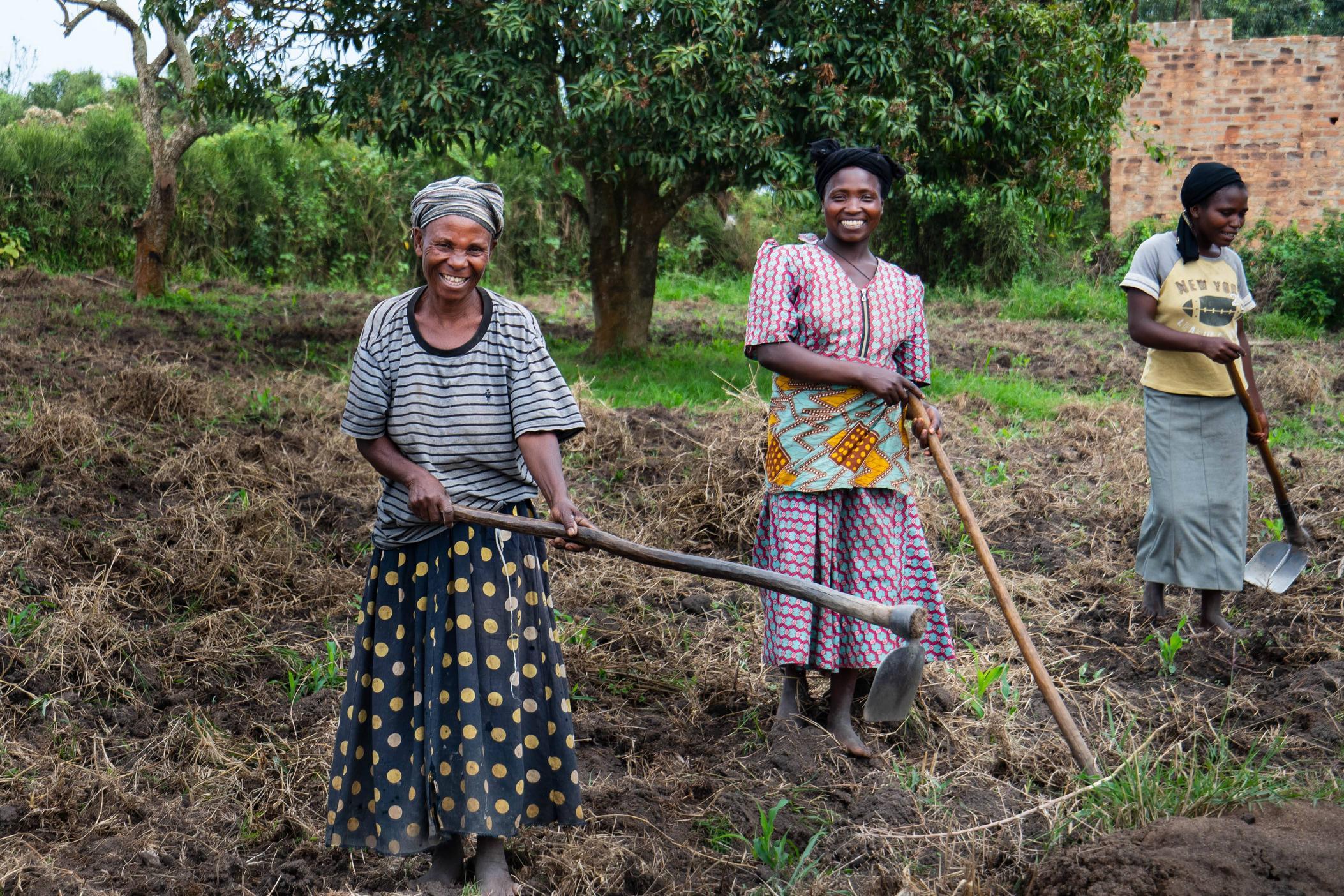
Climate Resilience
Seven refugee-led organisations (RLOs) in Kenya, Zimbabwe and Uganda are working together to address issues around climate change that affect their communities and promoting climate smart agricultural livelihood opportunities for their communities.As part of the collective, RLOs share knowledge, skills, experiences and best practices as they aim to build resilience and sustain and develop prosperity in communities under constraints brought about by climate change harshness. Refugee settlements like Kakuma refugee camp in Kenya, Tongogara Refugee Settlement in Zimbabwe, Kyaka II refugee settlement in Kyegegwa, Uganda among other refugee hosting areas in African countries often lack adequate infrastructure to withstand extreme weather events. This makes them highly susceptible to damage from floods, storms, and heatwaves, putting lives at risk and exacerbating already poor living conditions. In a nutshell, refugees are particularly vulnerable to the impacts of climate change due to their pre-existing challenges related to displacement, lack of resources, and precarious living conditions. A number of these communities sit on the frontline of climate vulnerable regions, their resilience and capacity respond is critical for today and the future.
Raised: £ 225

Women for Women
This collective consists of seven refugee-led organisations (RLOs) across East Africa working together to close the empowerment gap that prevents refugee women from accessing opportunities to transform their education, health, and livelihoods. Within the collective, women-led RLOs exchange knowledge, skills, experiences, and best practices to support refugee women, girls, and their host communities in improving health, mental well-being, economic stability, and leadership skills. This collaborative approach strengthens resilience and promotes women’s empowerment. These organisations enable refugee women and girls to drive lasting change, advancing resilience, economic security, and community leadership across refugee communities. To date, they have supported over 10,000 women.
Raised: £ 2

Digital Economies
Gaining employment as a refugee is harder than for a national. Refugees face discrimination both in entering the job market and in the monthly salary they receive once entering the job market. Barriers to refugee livelihoods lead to extreme poverty and long-term negative life outcomes. For example, the levels of poverty faced by households in Kakuma in northern Kenya can be illustrated in the behavior of 43% of families who employ immediately harmful coping mechanisms such as spending entire days without eating. However, there are opportunities for refugees to engage in and contribute to local and international economic growth. With the right skills, investments, and networks, refugees are playing a key role in local and international value chains. With improving connectivity and market linkages refugees all over the world are engaging in remote work and generating income online. These refugee-led organizations (RLOs) are collectively empowering youth with digital skills and connecting them with digital employment opportunities thus significantly contributing to their sustainable livelihoods. Facilities improvement, tapping into better internet connectivity, and procuring more and better computers are some of the urgent needs that these RLOs can address with additional funding. We invite donors and other partners to support them with funding of any amount.
Raised: £ 0
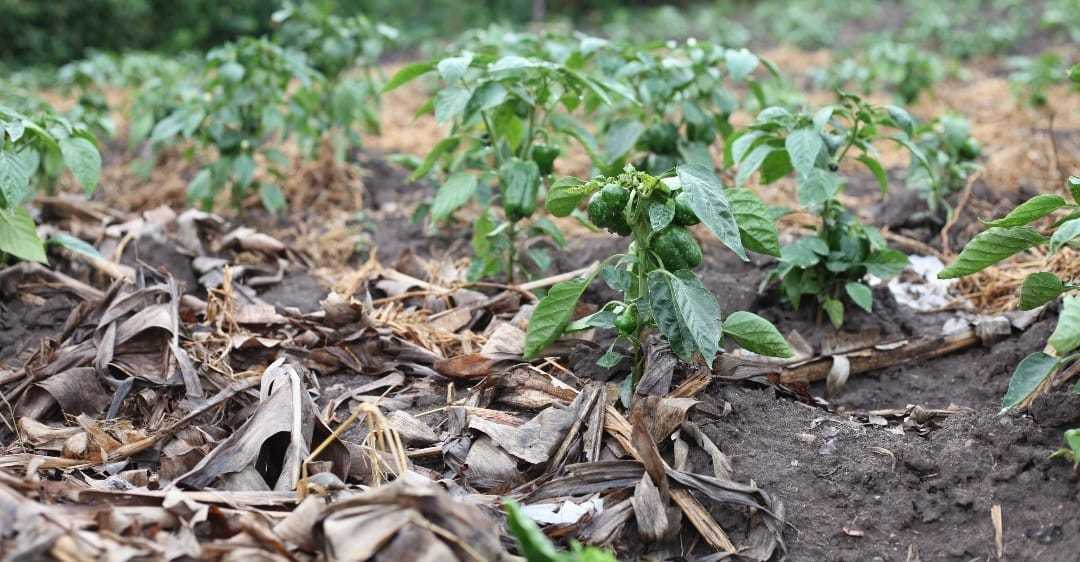
Sustainable Agriculture
Seventeen refugee-led organisations (RLOs) are empowering over 10,000 small-scale refugee farmers in Uganda, Kenya, and Malawi, annually, by promoting indigenous regenerative agricultural practices such as maintaining soil cover, crop diversity, minimal soil disturbance, and integrated crop-livestock farming. Unlike unsustainable aid-dependent interventions, this approach fosters long-term self-reliance and food security. In 2023, the UN World Food Programme’s funding shortfall of over 60% led to food ration cuts from 70% to 30%, pushing approximately 1.6 million refugees into emergency hunger. Recognizing the need for sustainable solutions, these organisations are tackling food insecurity, poverty, and hunger, helping refugee families achieve self-reliance and economic inclusion. Every donation supports this vital mission, impacting thousands of lives.
Raised: £ 0
Latest news & articles directly from our blog
Feb 20, 2025
YIDA Youth Initiative (YIDA) is a refugee-led and youth-led charitable NGO formed to promote sustainable living among refugees by providing quality education and financial inclusion, primarily targeting youth and children in the Kyaka II refugee settlement. YIDA offers early childhood education and primary education to refugee children and those in host communities through school construction and teacher training. Additionally, YIDA provides soft skills training to entrepreneurial refugees and offers startup capital within the refugee settlement and host communities to foster business development, thereby creating employment opportunities. Since 2014, YIDA has been educating refugee children, focusing on Early Childhood Education (ECD) and lower primary levels. Annually, YIDA educates over 900 refugee children, providing hot meals as the only primary ECD institution in the refugee community that offers meals to learners. YIDA operates two schools in the Kyaka II refugee settlement: Youth Initiative Kindergarten (ECD) and Youth Initiative Primary School. In response to the increasing demand for education and emerging technologies, YIDA has adopted technology as a methodology for delivering quality education. In 2024, YIDA partnered with Learning Equality to implement Kolibri, a tablet-based learning program supporting access to numeracy and literacy lessons. Kolibri is an offline platform that can be accessed without internet data, making it suitable for YIDA schools located in remote areas with limited internet and power access. While the program provides an opportunity for AI access to learners, it is not without challenges. For example, each child at Youth Initiative Primary School is expected to have a tablet, which is costly. How AI Can Be Used at YIDA Schools As YIDA strives to provide quality education, embracing AI technology is essential, as it has been proven to enhance educational delivery. Personalized Learning AI systems analyze individual student performance to tailor educational content according to their unique learning styles and paces. For instance, platforms like DreamBox and Smart Sparrow adapt lessons in real-time, allowing students to master concepts at their own speed (Owoyemi & Owoyemi, 2024). This personalized approach not only boosts confidence but also helps identify areas where students need improvement. Administrative Efficiency Teachers benefit from AI through the automation of grading and scheduling, significantly reducing their workload. Tools such as Gradescope provide consistent grading for assignments, enabling educators to focus more on teaching rather than administrative tasks (Owoyemi & Owoyemi, 2024). Engaging Learning Experiences AI enhances classroom engagement by integrating gamified content and interactive learning tools. Programs like Kahoot! utilize AI to create adaptive quizzes that respond to student input, making learning more dynamic and enjoyable (Owoyemi & Owoyemi, 2024). Moreover, initiatives like the MIT Media Lab's curriculum introduce children to AI concepts through hands-on activities, fostering an early understanding of technology (Owoyemi & Owoyemi, 2024). As AI continues to evolve, its role in primary education is expected to expand, promoting both digital literacy and critical thinking skills among young learners. Early Detection of Learning Disabilities AI can assist in the early detection of learning disabilities by analyzing data from children's activities to identify patterns that may indicate issues such as dyslexia or dyscalculia. Tools like Lexplore use AI and eye-tracking technology to detect reading difficulties early, allowing for timely intervention (JetLearn, 2025). Support for Teachers AI reduces the administrative burden on teachers, enabling them to focus more on direct educational interactions with students. It automates tasks such as grading, report generation, and lesson planning, streamlining workflow and decreasing teacher burnout. This allows educators to dedicate more time to engaging with their students and providing individualized support (Teachflow, 2023). Inclusive Learning Environments AI fosters inclusive learning environments by accommodating diverse learning needs, including those of children with disabilities. Customized learning aids can help ensure that all children have equitable access to education, addressing various challenges they may face (HeyCoach, 2024). Challenges Expected While Embracing AI in YIDA Schools The integration of Artificial Intelligence (AI) in educational settings, particularly at Youth Initiative Primary School and Youth Initiative Kindergarten (YIDA schools), presents numerous opportunities for enhancing teaching and learning. AI can significantly assist teachers in lesson planning, support inclusive education, and facilitate the early detection of learning disabilities. However, several challenges must be addressed to fully realize these benefits. High Costs of Accessing AI Tools: One of the primary challenges is the high cost associated with accessing AI tools. Implementing AI technologies often requires substantial financial investment in software, hardware, and training. These costs can be prohibitive for many educational institutions, particularly those operating on limited budgets. As a result, schools may struggle to provide equitable access to advanced educational tools, potentially widening the gap between students who have access to these resources and those who do not (Mendoza, 2025). Network Issues: Another significant hurdle is network connectivity. Reliable internet access is crucial for the effective implementation of AI in classrooms. In many regions, including areas served by YIDA schools, inconsistent or inadequate internet connectivity can hinder the use of AI tools. This limitation not only affects the ability to deliver lessons effectively but also impacts students' engagement and learning outcomes (Open Access Government, 2025). Additional Challenges Teacher Training: A lack of adequate training for educators on how to effectively integrate AI into their teaching practices can limit the technology's potential benefits (British Council, 2024). Ethical Concerns: Issues such as data privacy, algorithmic bias, and over-reliance on technology pose ethical dilemmas that need careful consideration (eSchool News, 2024). Student Engagement: While AI has the potential to personalize learning experiences, there is a risk that students may become overly dependent on technology for answers, which could undermine their critical thinking skills (Illinois College of Education, 2024). In conclusion While AI holds great promise for enhancing educational experiences at YIDA schools through improved lesson planning and support for inclusive education, addressing the associated challenges—such as high costs and network issues—is essential for successful implementation. References Owoyemi, A., & Owoyemi, J. (2024). Artificial Intelligence (AI) for Sustainable Youth Development. Retrieved from https://www.changesforhumanity.org/projects/yida HeyCoach. (2024). AI for identifying learning disabilities early. Retrieved from https://blog.heycoach.in/ai-for-identifying-learning-disabilities-early/ JetLearn. (2025). How AI can help identify and support learning disabilities. Retrieved from https://www.jetlearn.com/blog/how-ai-can-help-learning-disabilities Teachflow. (2023). The role of AI in addressing learning disabilities. Retrieved from https://teachflow.ai/the-role-of-ai-in-addressing-learning-disabilities/ British Council. (2024). AI in education: how to navigate the opportunities and challenges. Retrieved from https://internationalschools.britishcouncil.org/blog/ai-in-education-how-to-navigate-the-opportunities-and-challenges eSchool News. (2024). 5 obstacles AI can help schools overcome. Retrieved from https://www.eschoolnews.com/digital-learning/2024/04/16/5-obstacles-ai-can-help-schools-overcome/ Illinois College of Education. (2024). AI in Schools: Pros and Cons. Retrieved from https://education.illinois.edu/about/news-events/news/article/2024/10/24/ai-in-schools--pros-and-cons Mendoza, A. (2025). Embracing AI in Education: Tackling the Challenges. LinkedIn. Retrieved from https://www.linkedin.com/pulse/embracing-ai-education-tackling-challenges-alfonso-mendoza-jr-m-ed--uabqc Open Access Government. (2025). Navigating the future of AI in schools: Transforming challenges into opportunities. Retrieved from https://www.openaccessgovernment.org/navigating-the-future-of-ai-in-schools-transforming-challenges-into-opportunities/187808/
Feb 14, 2025
Introduction At Fountain of Hope School, we are pioneering innovative approaches to education byintegrating cutting-edge technology across all levels of learning from Kindergarten through Secondary School. Our commitment to digital transformation is reshaping how our students learn, engage, and prepare for the future. Digital Foundations: The Tablet Program In partnership with different partners, we've implemented a comprehensive tablet program that's revolutionizing early education. This initiative, focusing on students from Kindergarten 3 to Standard 4, leverages offline-capable application to enhance fundamental skills: Literacy Development: Students engage with interactive content that strengthens reading and writing capabilities Numeracy Skills: The program offers personalized mathematics instruction, ensuring each student progresses at their optimal pace Offline Accessibility: The application's offline functionality ensures consistent learning opportunities regardless of internet connectivity Program Impact by the Numbers Our tablet program has reached an impressive 922 students across different communities: 572 Fountain of Hope School students (from Kindergarten 3 to Standard 4) 110 students at Lilambwe, our partner community school 240 out-of-school children who previously had no access to education due to overcrowded public schools and financial constraints Advancing into AI: The Next Frontier Building on our digital foundation, we're excited to announce our latest partnership, bringing artificial intelligence into our classrooms. This cutting-edge program currently benefits 440 students from Standard 5 through Form 1, representing our commitment to preparing students for an AI-driven future. Key Features of Our AI Integration: Personalized learning paths tailored to each student's progress Advanced problem-solving Real-world application of technology skills Enhanced critical thinking development Back to School: Breaking Barriers in Eastern Congo In Bukavu, Eastern Democratic Republic of Congo, we've pioneered an innovative educational initiative called the Back to School program. This transformative program: Targets students aged 12-18 who have been out of the educational system Offers a condensed 6-year curriculum covering both primary and secondary education Prepares students for the Form 4 Congo national examination Has achieved remarkable success, with multiple students progressing to university education Celebrated its first university graduate last year Success Story Our first university graduate from the Back to School program stands as a testament to the transformative power of education and the importance of creating alternative pathways for learning. This achievement demonstrates how innovative educational approaches can break the cycle of educational disadvantage and create new opportunities for young people in challenging circumstances. Our Educational Ecosystem Fountain of Hope School's comprehensive approach spans three key divisions: Kindergarten: Building early digital literacy through age-appropriate technology Primary School: Blending traditional learning with tablet-based instruction Secondary School: Advanced technology integration with AI-powered learning tools Impact and Future Outlook The implementation of these technology programs has shown promising results in student engagement and academic performance. As we continue to evolve our educational approach, we remain committed to: Maintaining a balance between traditional teaching methods and technological innovation Ensuring equitable access to digital learning tools Preparing our students for success in an increasingly digital world Expanding our reach to support more out-of-school children and vulnerable communities Conclusion At Fountain of Hope School, we believe that the integration of technology, from tablets to AI, isn't just about keeping pace with the times - it's about creating an educational environment where every student can thrive. Through our partnerships with IMAGINE WORLDWIDE, ONEBILLION, and 2h Learning, and our innovative programs like Back to School, we're building a model for 21st-century education that not only shapes the future of learning but also transforms lives and communities.
Opportunities
2024-11-26
2024-09-10
100% OF YOUR DONATION GETS TO THE FRONTLINE
.jpg)
About Reframe
We want to Reframe the global humanitarian system and are committed to do things differently. We want to build a community of refugee leaders who are ready to respond to the world's biggest crises by leading change and delivering their own solutions.
What We Do
Reframe aims to be a solution to multiple challenges refugee-led organisations (RLOs) worldwide are facing.
Through Reframe we want to increase direct funding, raise awareness, build networks and strengthen coordination between RLOs, International Non-Governmental Organizations (INGOs), donors and institutional bodies.
MAKE A DIFFERENCE ALL YEAR LONG
Newsfeed
I CAN South Sudan
Follow up assessment of children with disabilities by 3 stars in Barakala(host community)
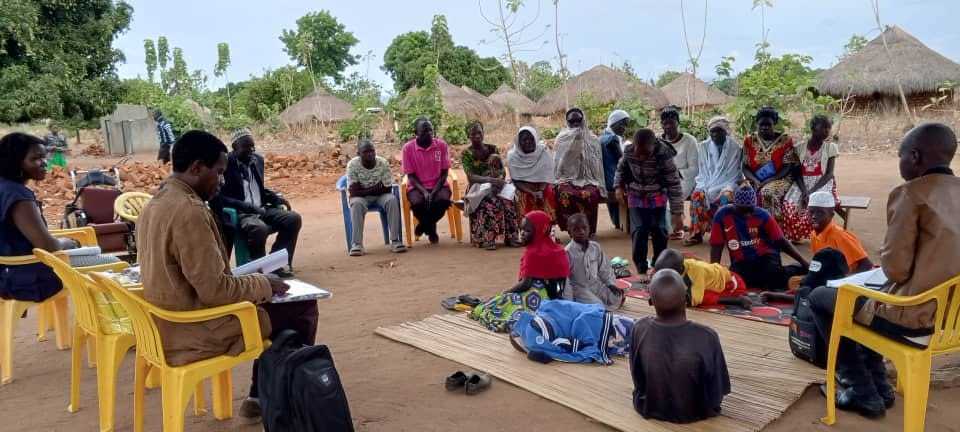
12:24 pm · Mar 20, 2025
0
1






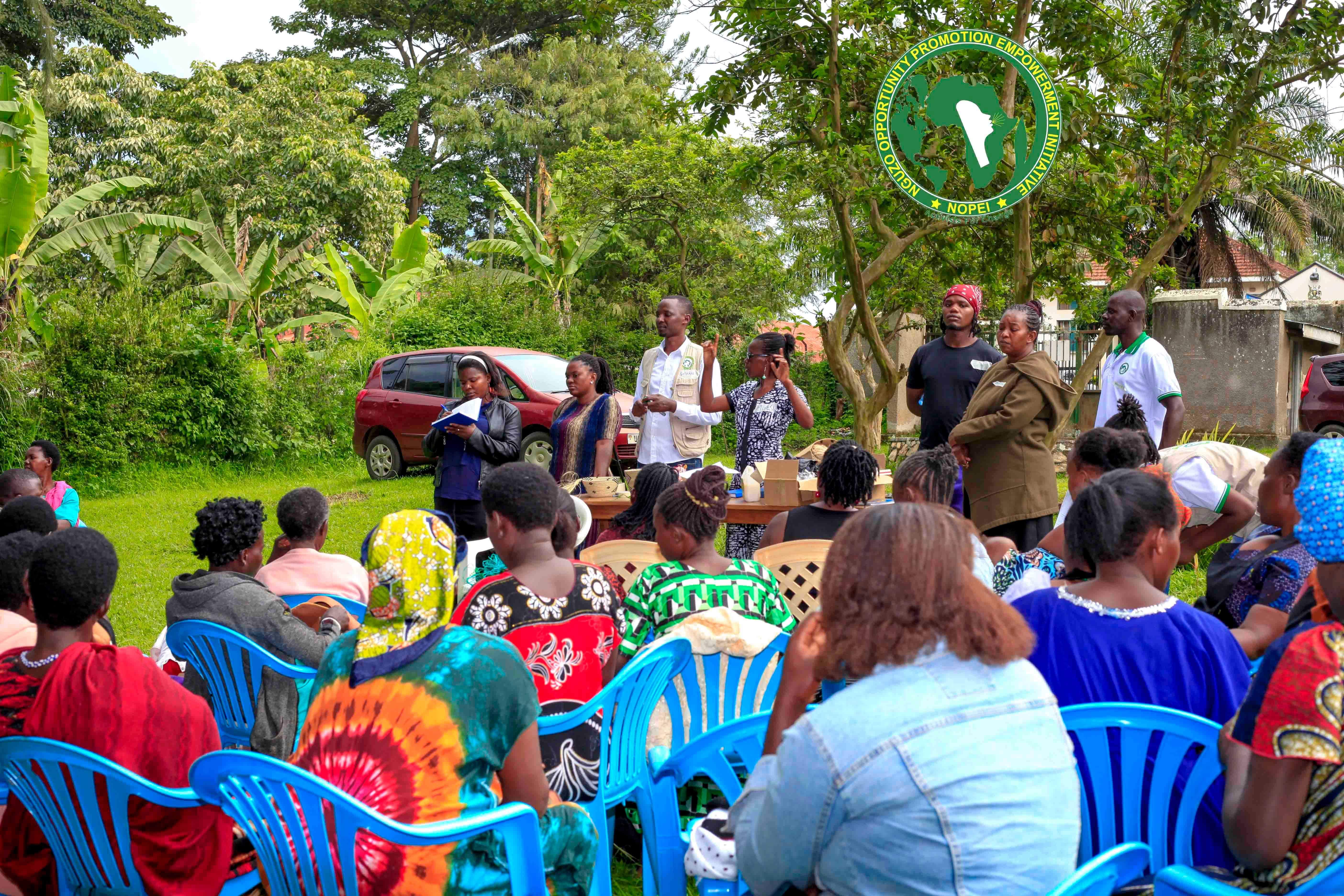
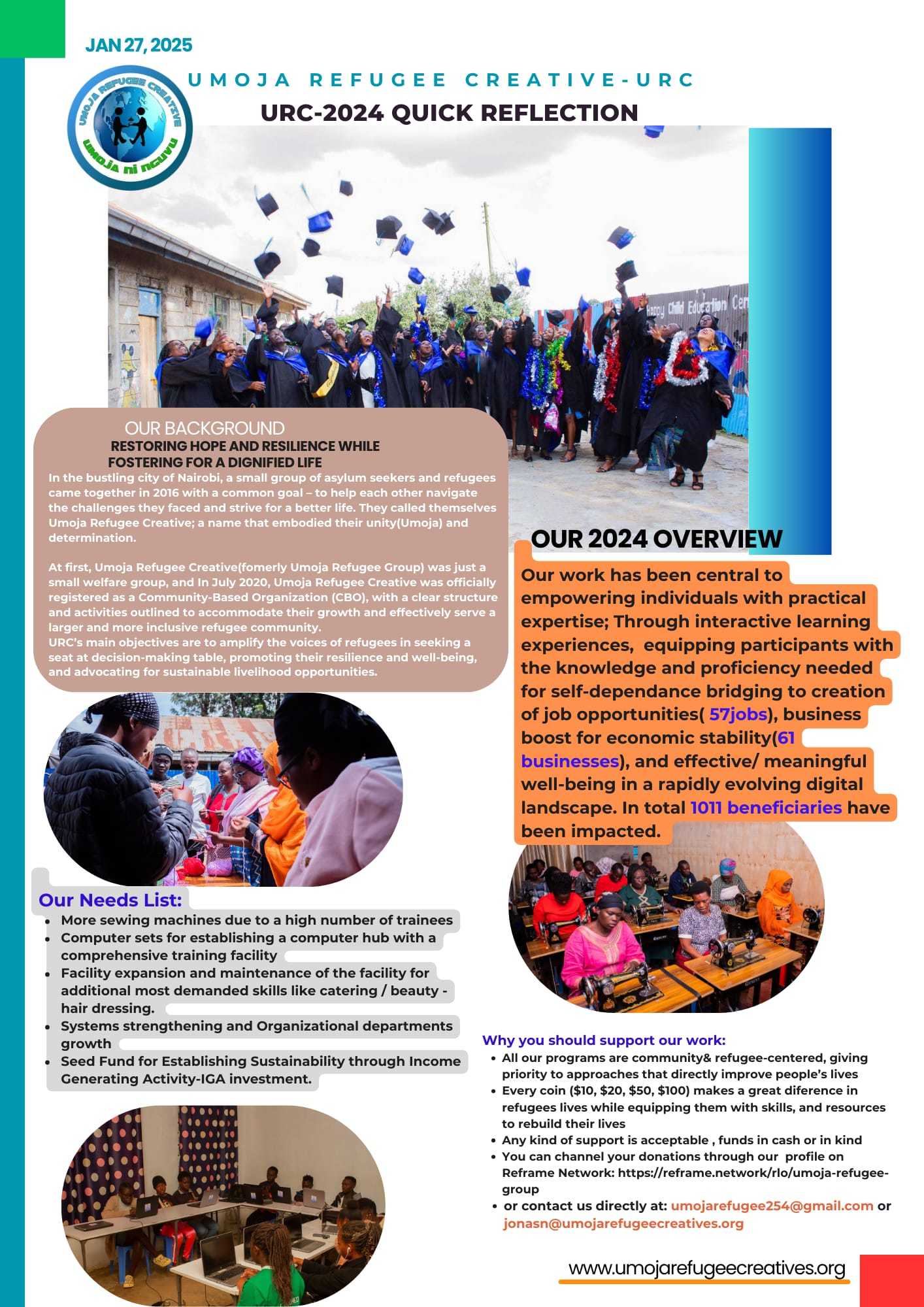

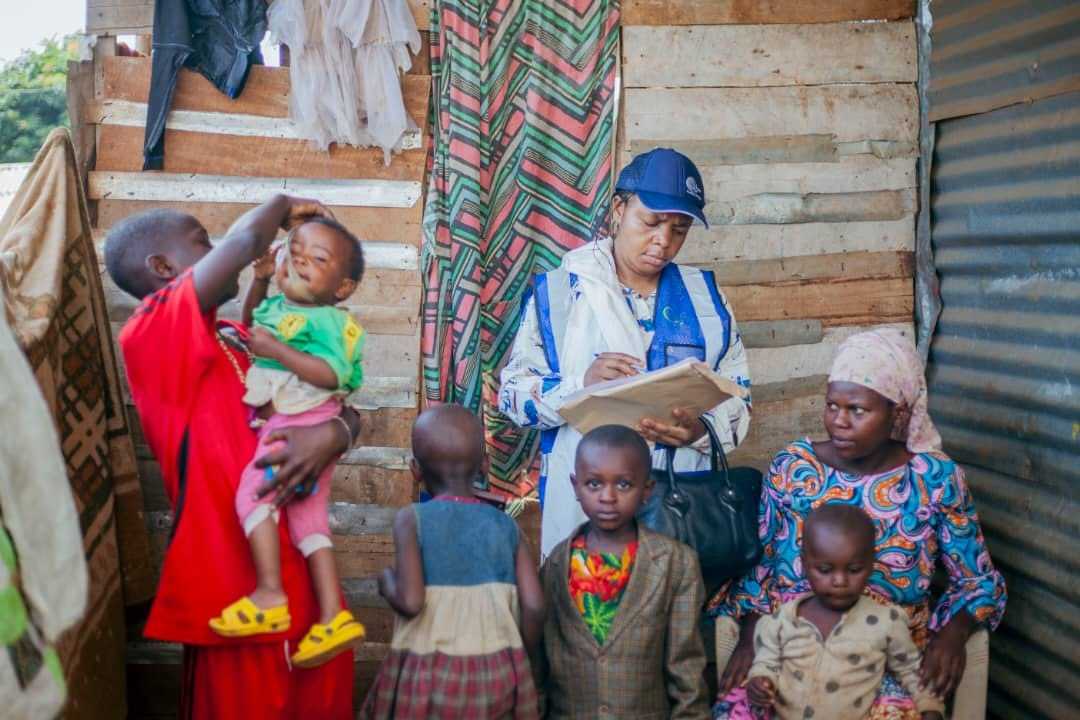
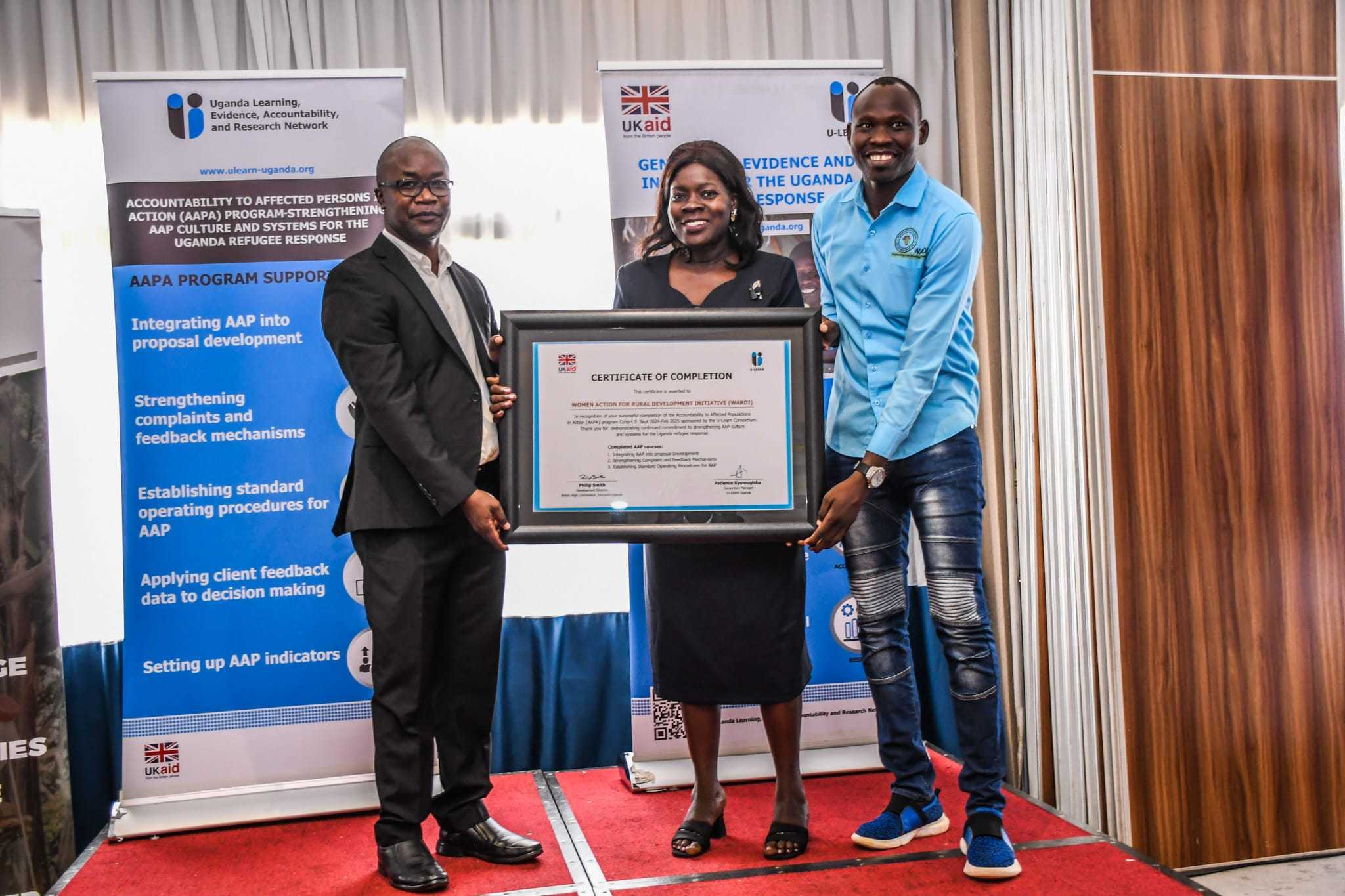

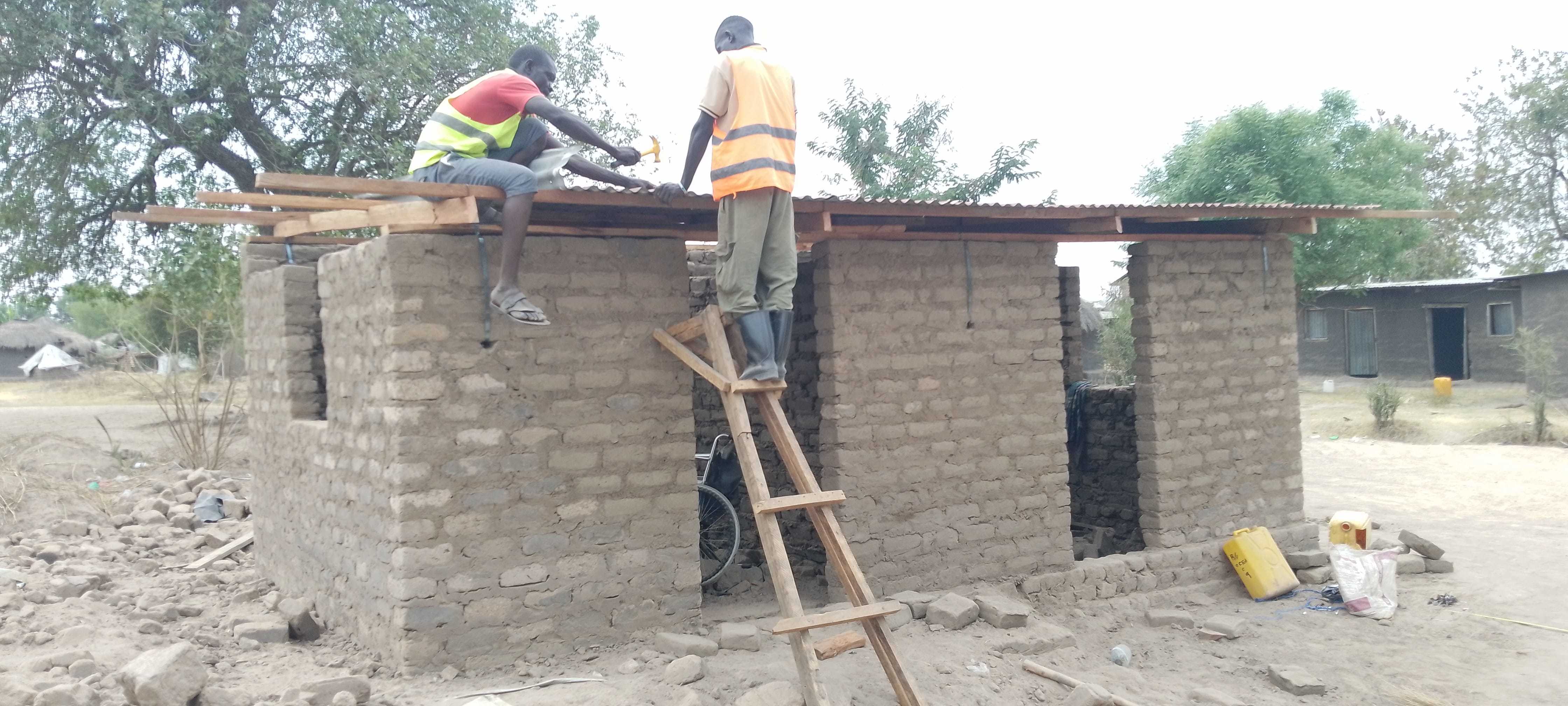
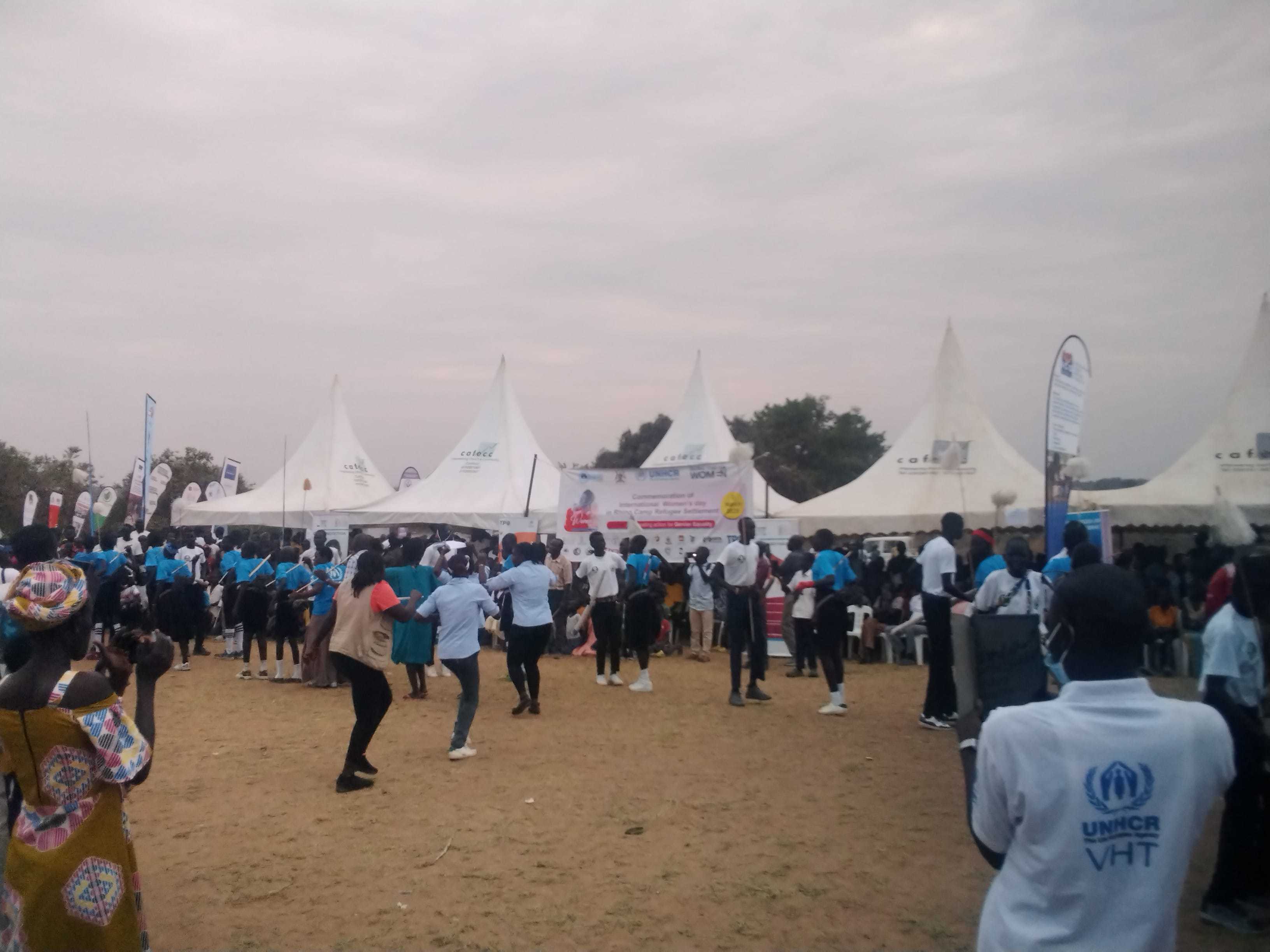
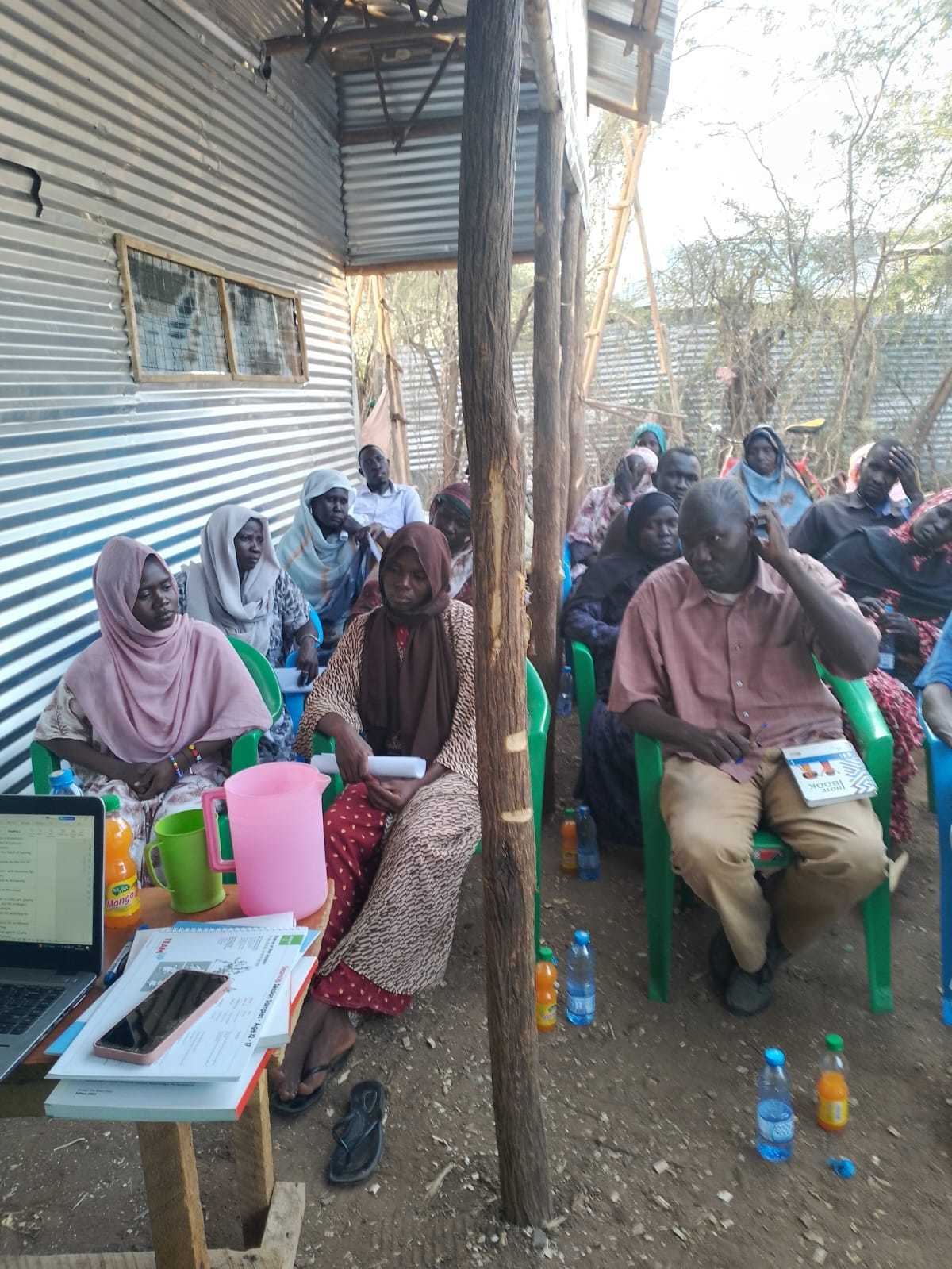
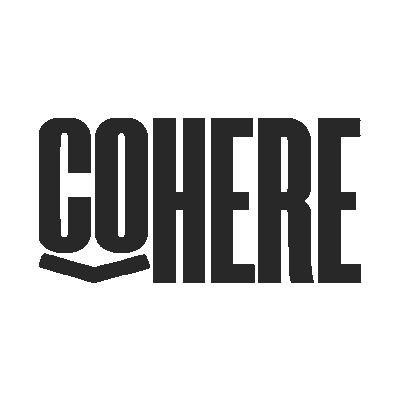
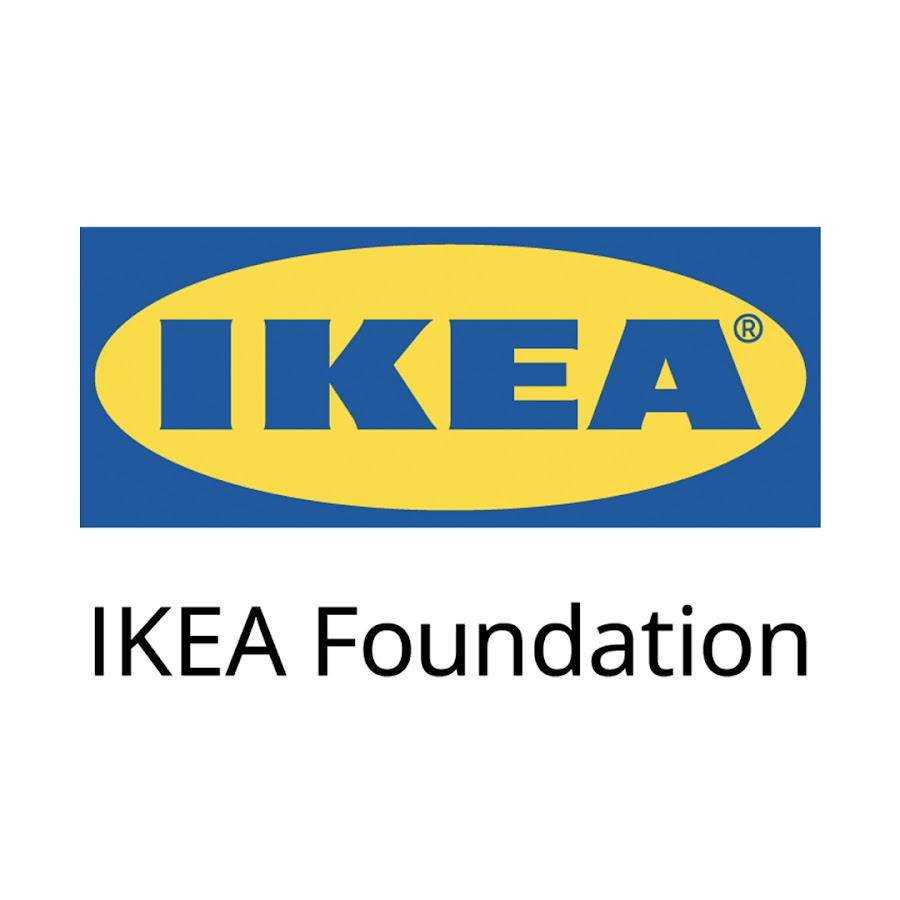
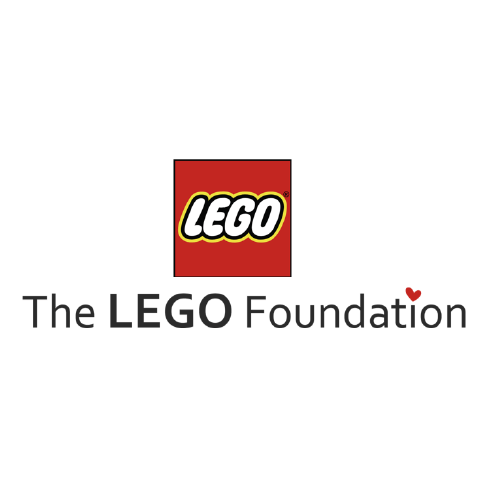
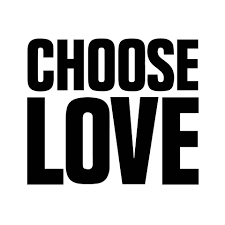
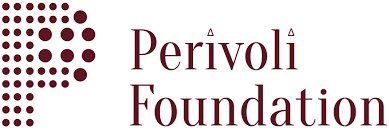
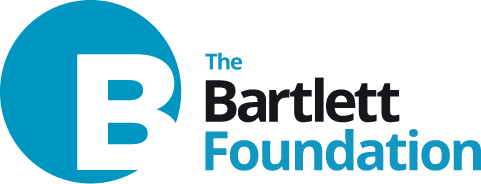
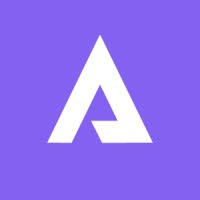
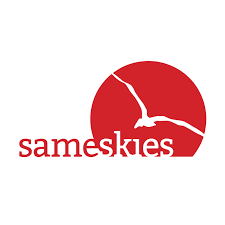
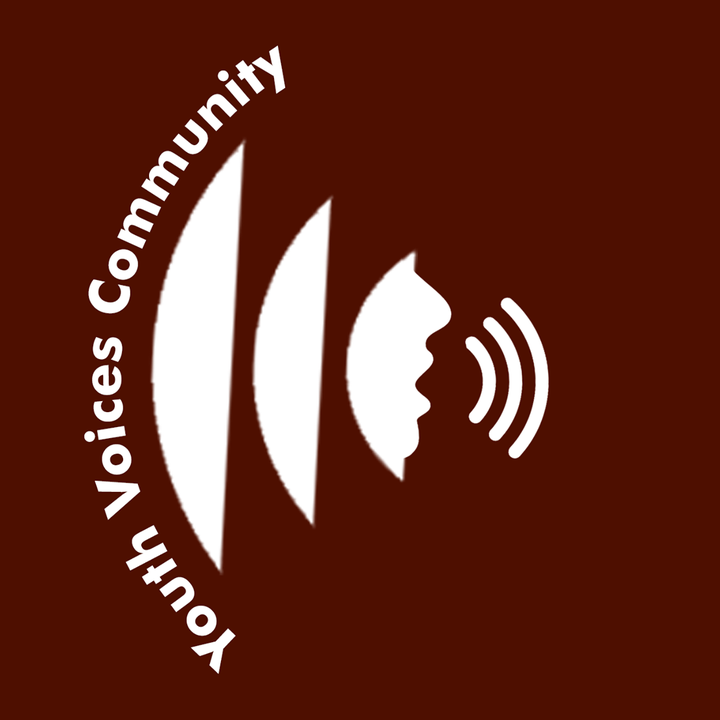
0